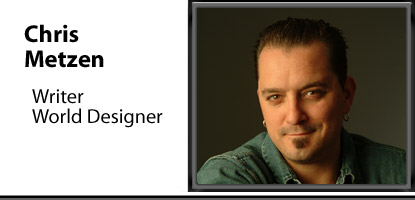i dreamt i adopted
a dog without a body or a head
and we went fishing.
afterwards, while I was
untangling the line,
a nice lady came up to see how
my dog and i were doing.
“his tail isn’t wagging much,” she said.
“i don’t think he’s ok.”
My walrus blues
This past weekend I was at a “family camp” near Yosemite. My wife and I bunked with another couple. A delightful couple. The woman lent us bug juice. Can you imagine that? A complete stranger. “My bug juice is your bug juice!” She had such a charming accent.
The guy snored like Thor trying to swallow a walrus through his nose. Around 6 am I swear to gawd I heard a pop, and I looked over, and his head was like a normal head, only it had an entire walrus inside it.
Tale as old as time….
I thought I’d had a lovely night out with the family tonight, enjoying Disney’s “Beauty and the Beast — the Musical.” But as we reversed out of our parking space, my son, Power Vortex, showed us how much better the evening could have been. “Tale as old as time…” I crooned. “I am Optimus Prime….” he rejoined.
The car went still. Still like an underground pool. Like, you know, like one of those “and a child will lead them” moments, where the kid says something so pure and so true the grownups have to stop singing show tunes. Like that.
“Beauty and the Transformer.” Optimus Prime gets turned into some kind of appliance, or a beat up old Chevy, until Beauty comes along and lifts the spell. Dancing Decepticons! Of course! And then the grand finale, in which Optimus Prime destroys Megatron and then transforms back into his true self before our very eyes.
Come on now! Who’s got 25 million bucks?!
Tale as old as time….
Gears as old as grime….
See my hub caps shine….
I am Optimus Prime….
Beauty and Transformers….
Old poetry books
revisiting old poetry books
finding bits that didn’t
spark for me
before but
are some how sparking for me
now. These words are
ripening.
He’s a witch and/or warlock
I think John McCain should be very very careful about giving people the impression that he can see the future.
Remember what happened to the last presidential candidate who pretended to be a witch and/or warlock? When Edmund Muskie claimed he could turn people into frogs? Remember how that turned out?
Not very well for Edmund Muskie, that’s how.
And that’s all I got.
It’s very hot here today. Positively algorial in fact.
The Heartbreak of Thunderwear
I woke up this morning with a new million-dollar idea: “Thunderwear.” I don’t even think I need to explain to the readers of this blog what a product called Thunderwear might be, right? I mean, seriously. You can’t help but make a million dollars with an idea like that.
So anyways, I amble on over to the gaping maw through which the Internet pours into my house and I start up the Google.
I’m asking you, what kind of world do we live in where the trademark for “Thunderwear” has already been used to describe “Gun holsters and Glock gun holsters for gun concealment”?
I don’t care what they say, I won’t live in a world where “Thunderwear” describes “Gun holsters and Glock gun holsters for gun concealment.”
Obama and Israel
Worth-the-read conversation with The Atlantic here.
What is holy?
Words are? Holy water
runs through you? Maybe?
Clouds then? Cameras? And the way they
stop things? Guitar holes?
A place where music gathers?
Words are. Holy water.
What the kids are up to
Disturbing news from the child front. My two lovely, sweet, and yes, borderline angelic children sang me a pair of gruesome songs tonight, both of which ended with Barney the purple dinosaur considerably worse for the wear.
“What the –?” I stammered. “Who taught you those horrible songs?”
“Everybody sings about killing Barney nowadays,” said my lovely, sweet, and yes, borderline angelic daughter.
An Interview with Chris Metzen, Part Two

Welcome to the second part of this interview with Blizzard VP of Creative Development Chris Metzen. If you haven’t already read the first part of this interview, be sure to check it out to hear about the power of spinning ideas, and how Metzen got his big break on a bar napkin.
Chris Metzen on the Web: Blizzard Entertainment, Warcraft: Of Blood and Honor, Sons of the Storm
Cecil Vortex: What do you think are the ingredients of good storytelling in computer games?
Chris Metzen: You definitely want “show — don’t tell.” And it’s difficult in interactive spaces because “showing” usually means it’s very keyed into specific art resources or the way your game engine works. Also, more often than not, you don’t want to stick the player with minutes worth of exposition. Ultimately, it’s a video game and people are conditioned to want push buttons or click their mouse. Whether they’re playing Pac-Man or Half Life 2 or World of Warcraft, they want to feel like they’re in the driver’s seat — that’s the difference between the interactive medium and film, for instance. In film you’re pretty much a captive audience. You’re going to sit there for two hours and experience what the writer and the director and the actors want you to experience. You have very little say in the matter other than how you process it after the fact, right?…. [So] even if we take control away from you for a couple of minutes to show a pre-rendered cinematic, or a cinematic sequence that shows the next story note unfolding, we want to get people back into the action as soon as possible. And that determines the way your story unfolds. You have to tell it in bite-sized chunks because you know that control must resume for the player pretty soon.
CV: How do you typically kick ideas off?